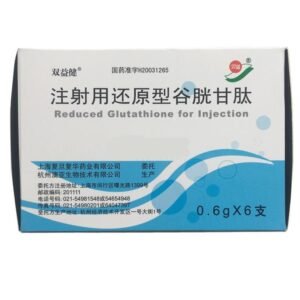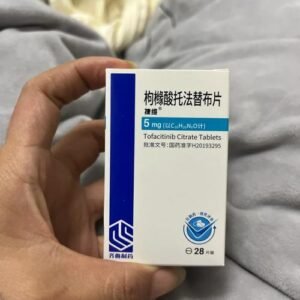Alkeran Melphalan hydrochloride
【Function and Indications】
Alkeran (Melphalan) can be used for a variety of tumors. It is the first choice for multiple myeloma in single chemotherapy and combined chemotherapy. It is effective for seminoma, breast cancer, ovarian cancer, chronic leukemia, polycythemia vera, malignant lymphoma, advanced childhood neuroblastoma, and thyroid cancer. Arterial infusion has a good effect on the treatment of limb malignant tumors such as malignant melanoma, soft tissue sarcoma and osteosarcoma. It is occasionally used to treat certain autoimmune diseases and prevent rejection during organ transplantation.
【Model and Specification】
Dosage form: tablets. 2mg*25 tablets/bottle
【Usage and Dosage】
Because melphalan has a bone marrow suppressive effect, it is necessary to frequently monitor blood counts (blood cell counts) during treatment. If necessary, suspend medication or adjust the dose. Or follow the doctor’s advice.
Oral medication for adults
The absorption of oral melphalan is variable. In order to ensure that the possible therapeutic level is achieved. The dose should be increased cautiously until bone marrow suppression occurs.
Multiple myeloma
There are many treatment options, and the literature should be consulted in detail. The combination of melphalan and prednisone may be more effective than melphalan alone, and the combination is usually taken intermittently. Although the superiority of extended continuous medication has not been confirmed, the typical dose is 0.15 mg per kilogram of body weight per day in divided doses for four days, and the course of treatment is repeated after six weeks. For those who respond to treatment, extending the course of treatment for more than one year will not improve the efficacy.
Ovarian adenocarcinoma
The typical treatment regimen is 0.2 mg per kilogram of body weight per day for five days, and the course of treatment is repeated every 4 to 8 weeks or when the peripheral blood picture recovers; the dose should be reduced when bone marrow toxicity occurs.
Advanced breast cancer
Oral melphalan is 0.15 mg per kilogram of body weight or 6 mg per square meter of body surface area per day for 5 days, and the course of treatment is repeated every six weeks. Melphalan can also be used for intravenous injection.
Polycythemia vera
During the induction remission period, 6 to 10 mg per day for 5 to 7 days, then 2 to 4 mg per day until the symptoms can be satisfactorily controlled. The maintenance dose can be 2 to 6 mg once a week. During this period, the patient must be carefully and cautiously controlled for hematological management, and the dose should be adjusted appropriately based on the blood cell count results.
Patients with renal insufficiency
Based on the currently established pharmacokinetic data, it is not absolutely recommended to reduce the dose of oral melphalan for patients with moderate to severe renal insufficiency, but the initial dose needs to be carefully reduced.
[Reference Dosage] Oral: 0.05~0.25mg/kg (2~10mg/m2) daily, divided into two doses, for 4~7 days. This product may be more effective when used in combination with prednisone than when used alone. Combination therapy is usually performed intermittently. For patients who are effective, extending the course of treatment for more than one year will not change the efficacy. If there is no obvious bone marrow toxicity, repeat the administration within 4~6 weeks.
[Clinical Research]
If you are allergic to this drug, please do not use this drug, avoid drinking, avoid taking Aspirin (Tapal®) or cold medicine, and inform your doctor before receiving a vaccine injection. You need to inform your doctor that you are prone to infection, avoid going to public places and prevent colds, etc. Do not breastfeed or become pregnant. This drug may cause infertility. Oral inflammation, sores, and tingling sensations are common. Oral hygiene must be thorough. To prevent nausea and vomiting, ask your doctor to prescribe antiemetics. Your doctor may draw blood for a blood test. Side effects that patients should be aware of: Fever, chills, sore throat Unusual bleeding, bruises Missed periods Avoid drinking water or use a straw when your mouth is inflamed; severe diarrhea, redness of the skin, urticaria, and difficulty breathing. Please ask your doctor about the following side effects: loss of appetite and hair loss.
[Precautions]
1. Use with caution in patients with renal dysfunction.
2. Because this product can increase blood urea nitrogen, blood counts and blood urea nitrogen levels should be monitored during use. If the neutrophil count is less than 2×109/L, the drug should be discontinued.
(1) Blood counts should be checked before each use. If the neutrophil count is less than 2×109/L, the drug should be discontinued.
(2) The dose should be adjusted according to the degree of bone marrow suppression.
(3) If you are allergic to this drug, please do not take it. Avoid drinking alcohol, taking Aspirin (Tapal) or cold medicine, and inform your doctor.
(4) Before receiving a vaccination, you need to inform your doctor that you are prone to infection, avoid going to public places and preventing colds, etc. Do not breastfeed or get pregnant. Taking this drug may cause infertility.
3. Pregnant women using melphalan incorrectly may cause fetal malformation
Melphalan can enter the fetus through the placenta from the pregnant woman’s blood and directly have a toxic effect on the fetus, especially in the first 3 months of pregnancy, because the fertilized egg is in the differentiation stage, the various systems have not yet formed, and it is in the development stage. The embryonic cells are exposed to chemical drugs, which may induce genetic mutations and lead to fetal malformations.
Using melphalan in early pregnancy can cause fetal limb malformation, which is congenital. Using it after 4 months of pregnancy can cause fetal bone and tooth development disorders. Other drugs such as kanamycin, gentamicin, and streptomycin can damage the fetal auditory nerve, causing congenital malformation. Antipyretic analgesics such as aspirin and aminopyrine can cause fetal central nervous system and kidney malformations. Large doses of corticosteroids (prednisone) can cause multiple fetal malformations, such as cleft lip and cleft palate. Sex hormones can cause fetal endocrine changes, such as testosterone propionate can masculinize the external genitalia of female fetuses. Long-term use of sedatives (hibernation spirit, perphenazine, etc.), anti-drugs (chlorpheniramine, diphenhydramine, etc.), diuretics (hydrochlorothiazide, etc.), and nasal drops can cause fetal nervous system development disorders and other potential teratogenic effects. In addition, drugs that break qi and promote blood circulation, extreme cold and extreme heat, and slippery sedimentation can have adverse effects on both the mother and the fetus. Melphalan drugs should be used with caution.
[Adverse Reactions and Contraindications]
The most common adverse reaction of melphalan is bone marrow suppression, which can lead to leukopenia and thrombocytopenia. Up to 30% of patients experience gastrointestinal discomfort, including nausea and vomiting, after taking regular doses of melphalan orally. Gastritis is rare with regular doses of melphalan, while high doses of intravenous melphalan may increase the possibility of diarrhea, vomiting and gastritis. It has been reported that the use of cyclophosphamide as a pre-treatment can reduce melphalan-induced gastrointestinal damage. Occasionally, patients who have received treatment for more than several months have allergic reactions to melphalan, such as urticaria, edema, rash and anaphylactic shock. There are two other cases of cardiac arrest, but whether this side effect is caused by melphalan has not been confirmed. Maculopapular rash and itching have also been reported occasionally. There have been cases showing that pulmonary fibrosis and hemorrhagic anemia have occurred after the use of melphalan. There have been reports of hair loss, but it is not common.
[Contraindications]
This product is contraindicated for women with a history of allergy to this product and pregnant and lactating women. It is not suitable for those who have undergone chemotherapy or radiotherapy recently and have leukopenia.
【Drug Interactions】
The safety and efficacy of this product for children has not been clinically studied.
【Drug Interactions】
The combination of nalidixic acid and intravenous drip of this product at high doses can cause death of children due to hemorrhagic enteritis. For bone marrow transplant recipients, high doses of this product are used intravenously before surgery to control the condition, and then cyclophosphamide is used after surgery to prevent the recipient’s body from rejecting the new bone marrow, which can cause renal dysfunction.
【Storage】
The best way to store melphalan is in the original packaging, which is easy to identify and easy to master the method and dosage of taking. If there is no original packaging, clean vials should be used, dried and filled with medicine, and the name, method of taking, dosage, etc. of the medicine should be clearly written and affixed to the packaging bottle.
2. Create a detailed list of medicines:
It is divided into two categories: oral medicines and external medicines, and then listed by drug name, purpose, dosage, usage, precautions, melphalan expiration date, etc. Once needed, you can check the table, which can play a role in convenient and safe medication.
3. Avoid light: Melphalan is a Western medicine, most of which are chemical preparations. Ultraviolet rays in the sun can accelerate the deterioration of drugs, especially vitamins and antibiotics. When exposed to light, the color will deepen, the efficacy will decrease, and even become harmful toxic substances. In the pharmacy, we can see many dark and opaque grinding stone bottles, some of which are brown and some are blue. That is to avoid light and keep the drugs from deteriorating.
4. Sealing:
The oxygen in the air can oxidize and deteriorate the drugs. Therefore, whether it is oral or topical medicine, you must cover the bottle cap tightly after using melphalan to prevent the drugs from oxidizing and deteriorating and becoming ineffective.
5. Drying:
Melphalan drugs are very easy to absorb moisture in the air, and after absorbing moisture, they begin to slowly decompose into salicylic acid and acetic acid, producing a strong sour taste, which greatly increases the irritation to the stomach.
6. Cool:
The chemical reaction of melphalan drugs accelerates with the increase of temperature. When the temperature rises by 10 degrees, the chemical reaction rate can increase by 2-4 times. Therefore, the storage location of the drugs should be selected in the coolest place at home.
【Manufacturer】Aspen Pharmaceuticals
Share:
Products
Our offers
Health Classification
Let us work together to protect precious health




























